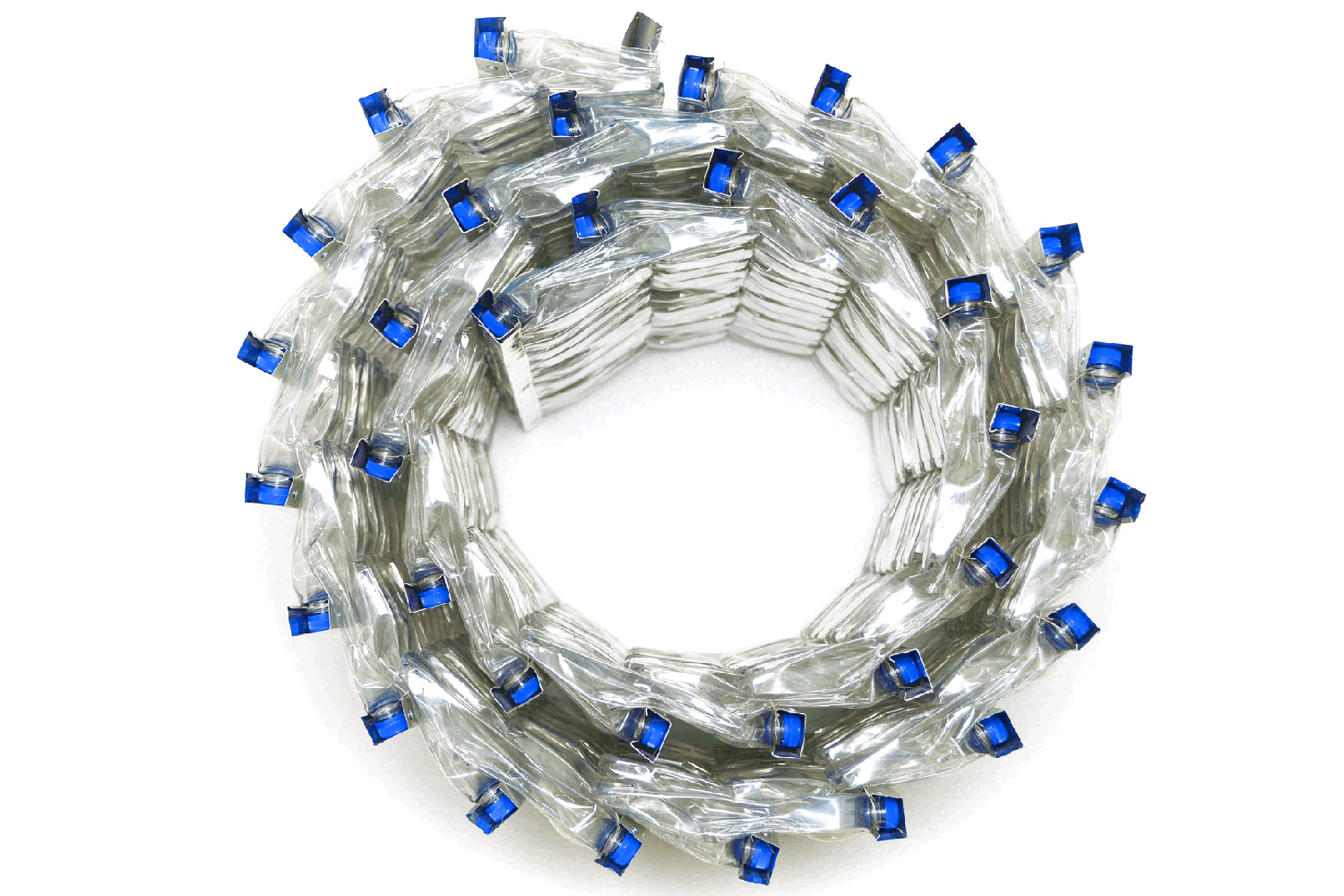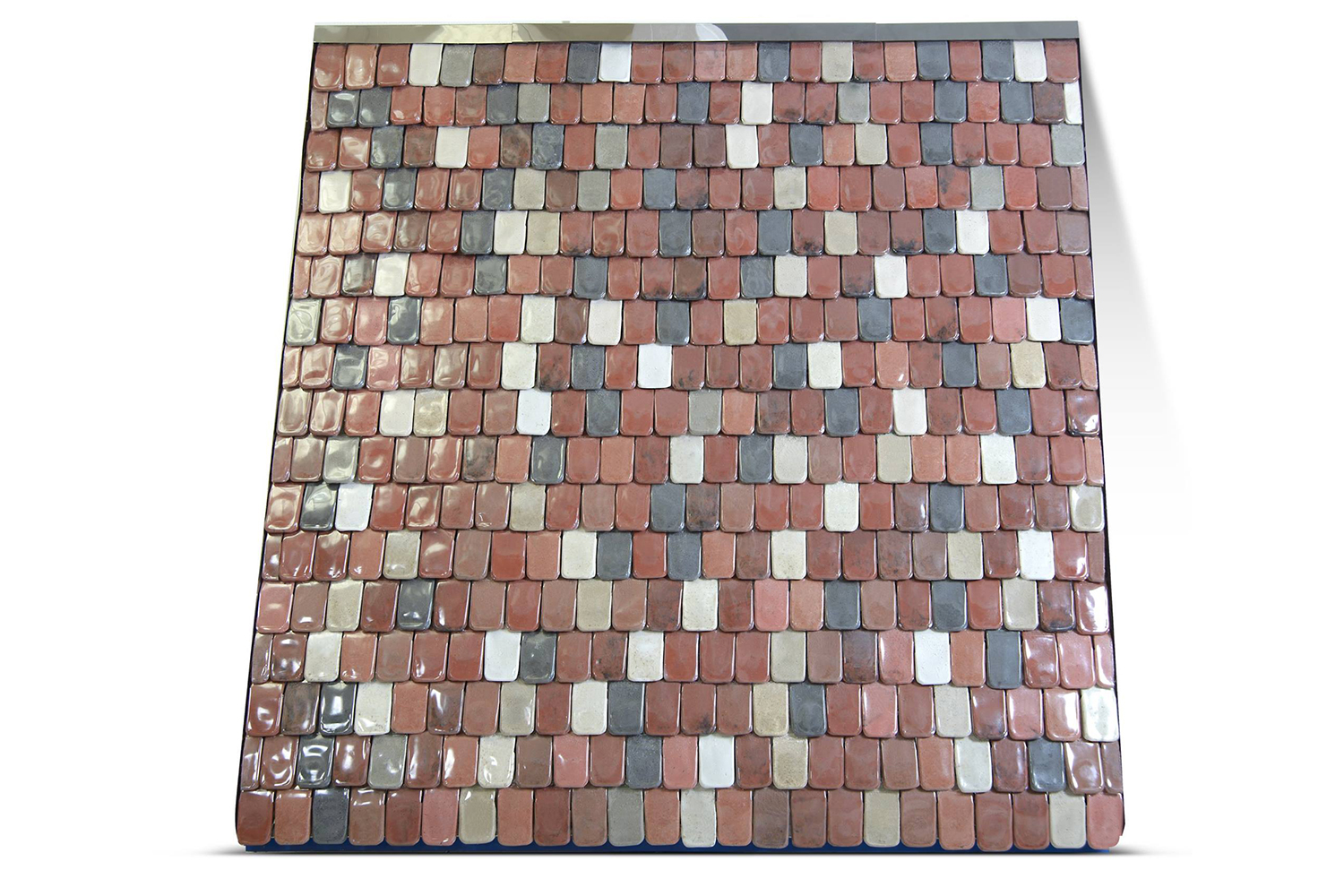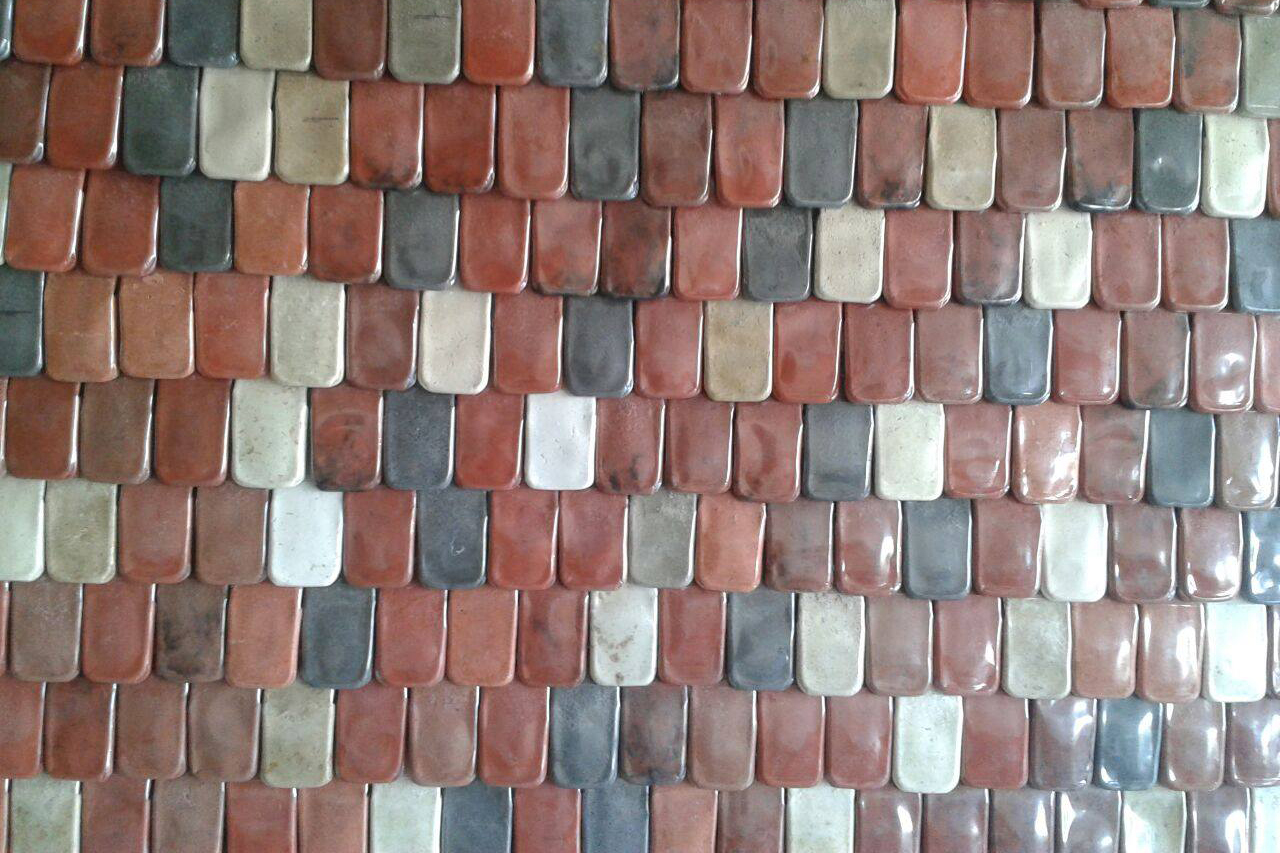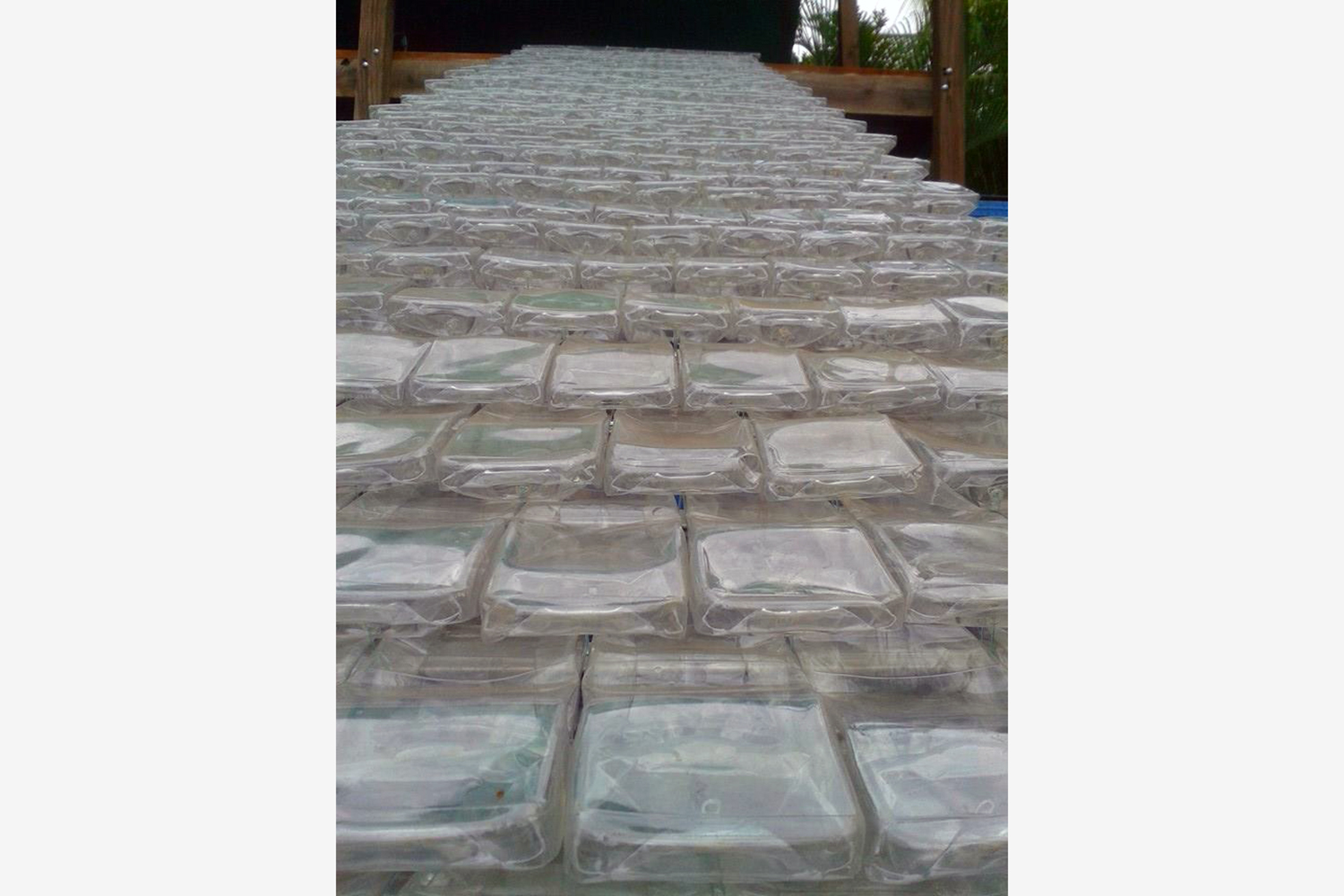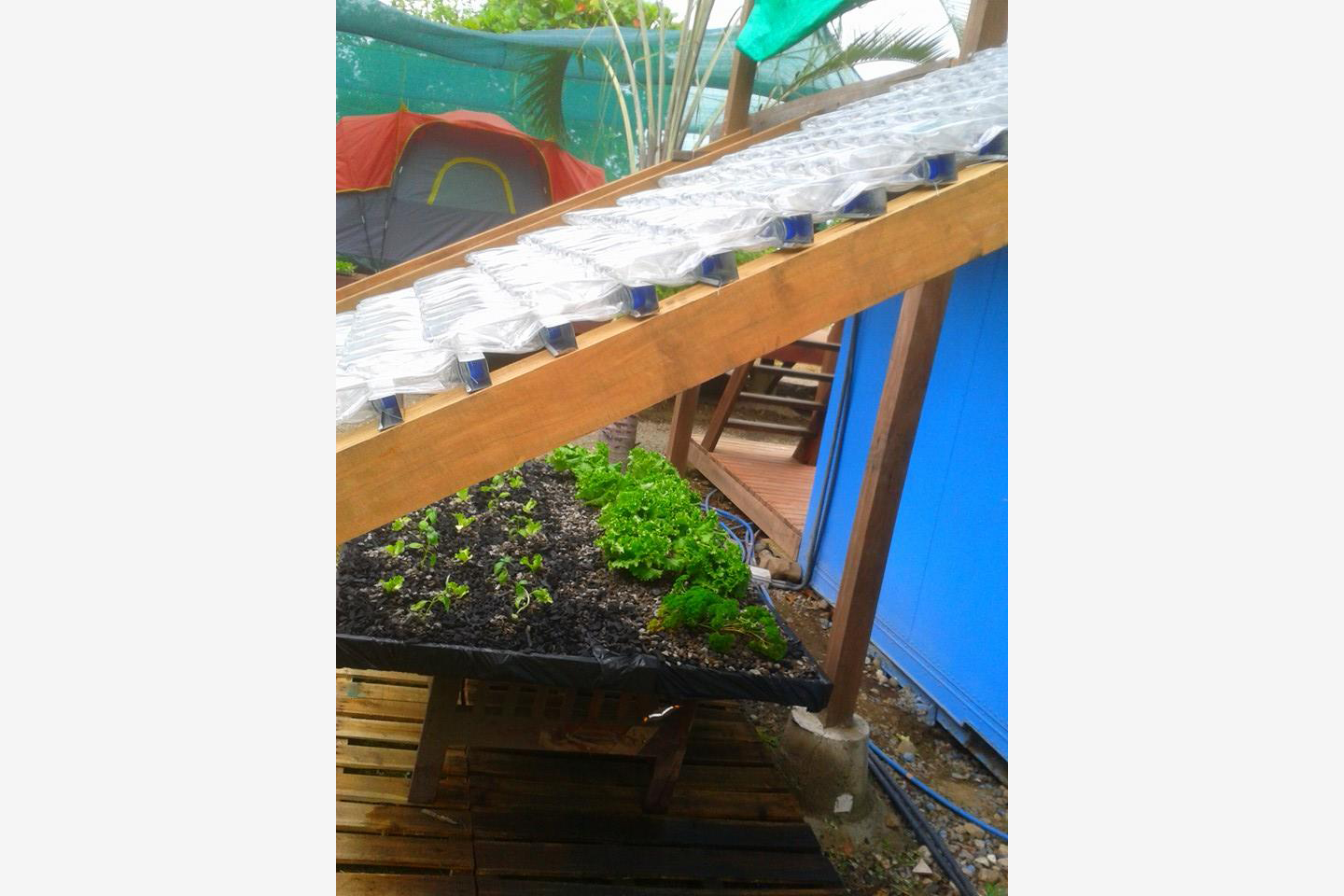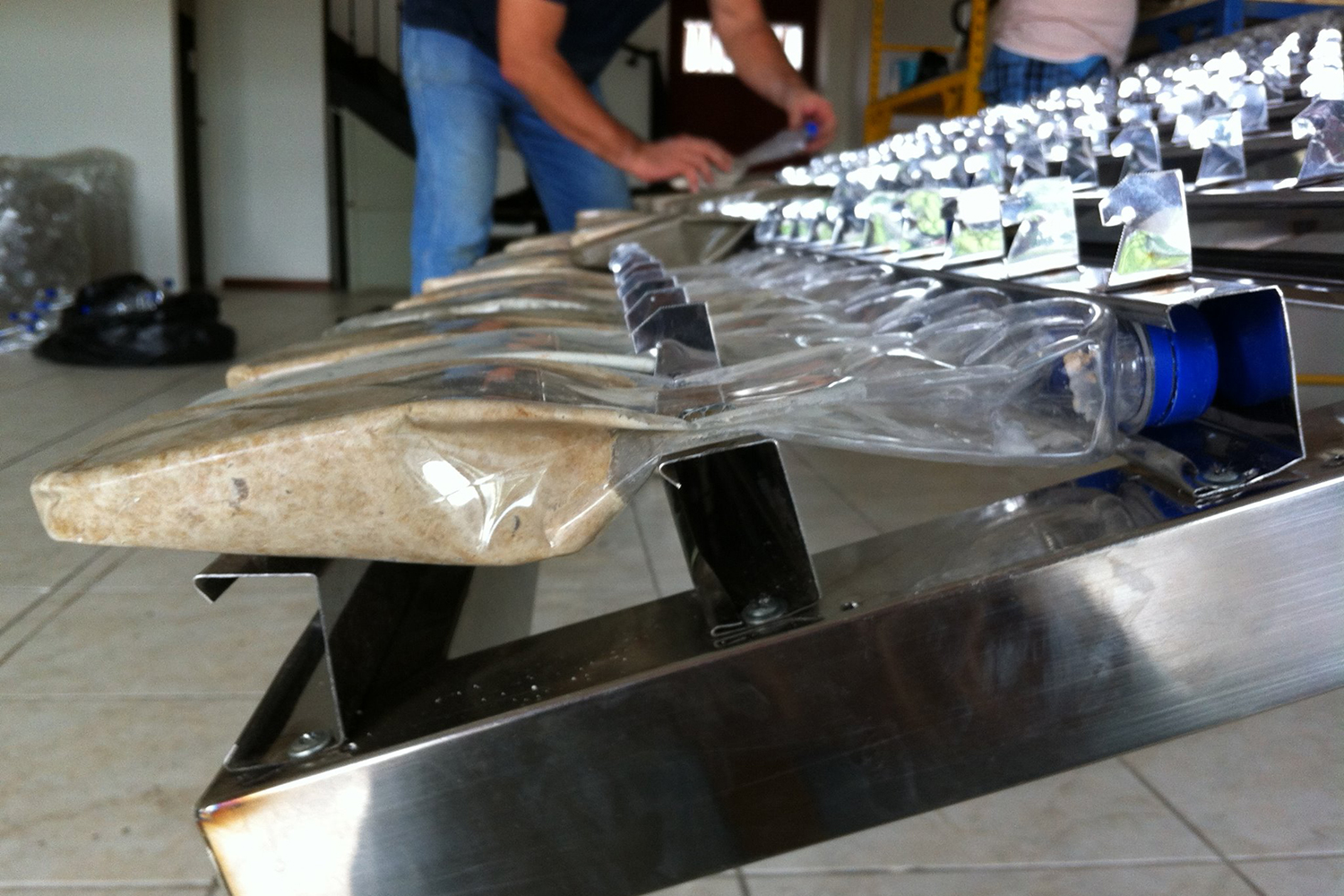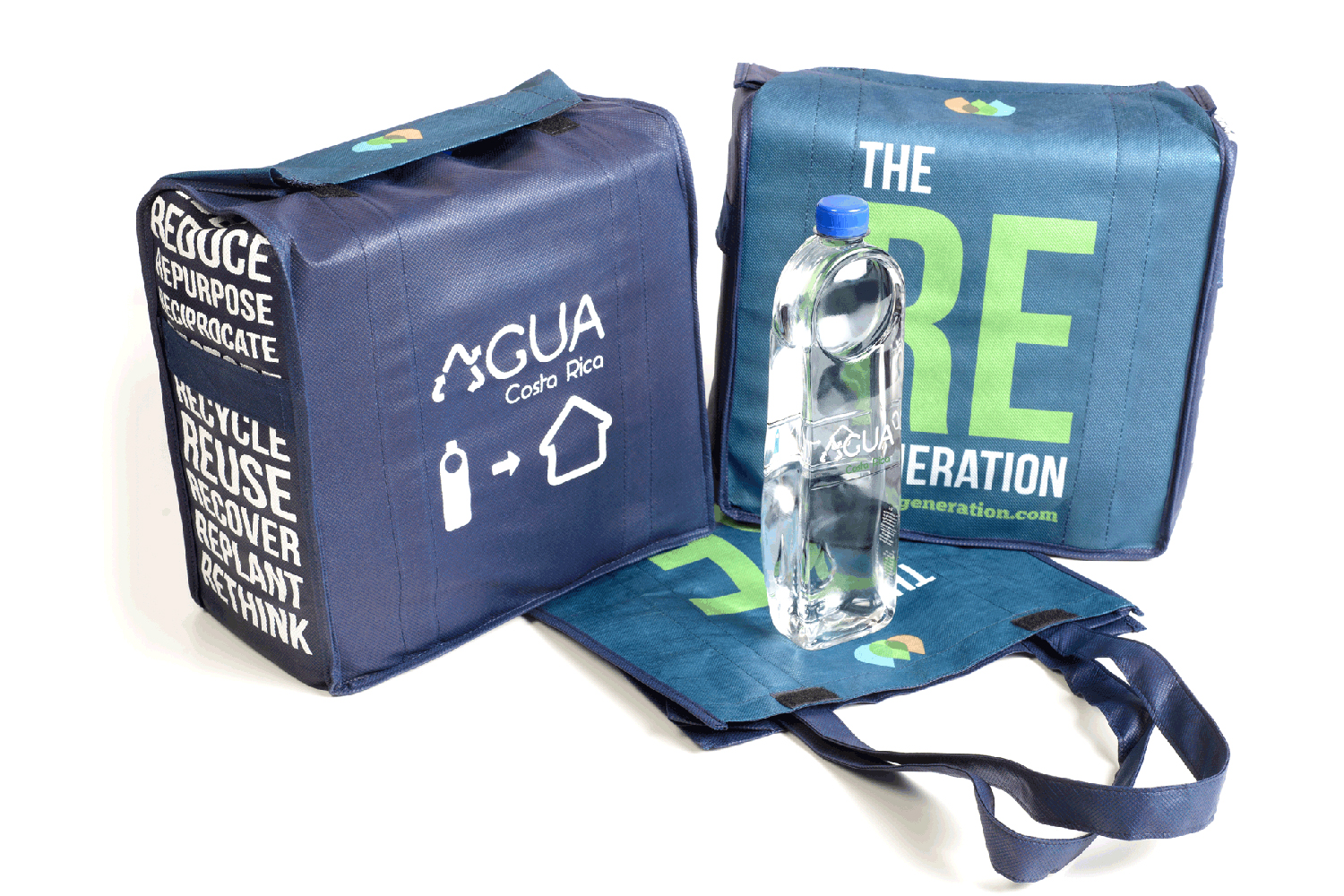Most PET water bottles — the disposable kind you grab from the gas station’s fridge — end up in landfills, though they’re really recyclable. It’s one reason cities such as Chicago started taxing water bottles. And while such taxes do curb the sales, they don’t eliminate them all together.
In order to do something useful with all those plastic bottles, entrepreneur Donald Thomson started ‘A’Gua water bottles in Costa Rica. Though he never used to drink from plastic bottles himself, he wants to use the product — once they’re empty of water — as concrete-and-waste-paper-filled tiles.
The idea came after he organized a beach cleanup and saw the stacked rows of bottles. “We realized that when waste PET containers were flattened and put into rows they crudely resembled slate tiles. This realization inspired the long journey into what we call today the ‘bottle-to-tile’ project,” he tells Co.Design.
His company, the Center for Regenerative Design and Collaboration, now makes rectangular bottles suited for flattening into tiles, which cost about $1.38 each at the local grocery chain. Right now, the company can make about 400 bottles per hour but hopes to automate the process soon.
Turning the bottles into tiles requires a special machine. “We then got involved with engineering students at Seattle University, who developed a manual press that can be used to fold the bottles every time — bang, bang, bang — with no additional energy needed,” says Thomson. The insulation can be tinted different colors, turning the clear bottles into something that resembles more traditional roofing materials.
The tiles fit together in 3-by-12-foot rolls that unfurl on the roof. Despite limited capital for the housing project, Thomson wants to build 40 units next year, each of which will need 10,000 bottles.
“This year in Costa Rica we’re going to be really dedicated to the entire cycle, from picking up bottles off the beach to building houses,” he says. “And I believe we’ll have one of the very best examples of the circular economy — of upcycling — in the world.”
